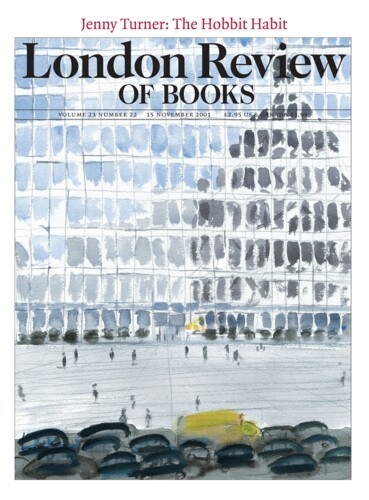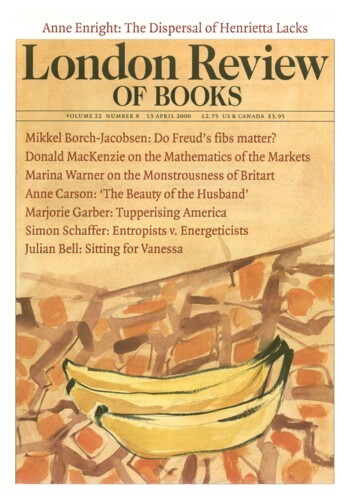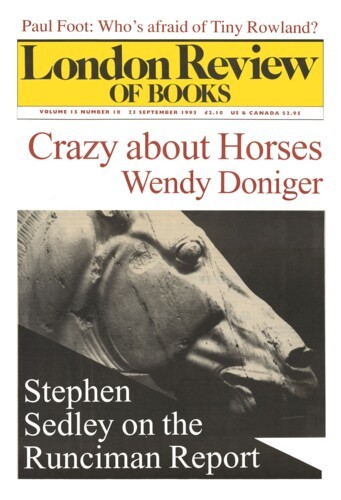Bernard Wasserstein
Bernard Wasserstein, author of Vanishing Diaspora: The Jews in Europe since 1945, is a professor of history at Glasgow University.
Forever Unwilling
Bernard Wasserstein, 13 April 2000
No one has yet written a worthwhile history of the Jews in modern Europe. Apart from the problem of the range of sources and languages, there is an intrinsic difficulty which is at the heart of the Jew’s predicament in the modern world: the Jews are and are not a unit. It is not just that they are internally divided – that is true of all groups – but that the modernisation of the Jews has involved an irretrievable jettisoning in part or whole of their Jewishness and a submersion in the cultures and societies of their residence. This process came into operation sooner and on a larger scale in some areas than others: it reached its furthest extent in France, England and some German and Hungarian-speaking regions of Europe. It was slowest in Russia and Russian Poland – though even there it had advanced substantially by the First World War. To write the history of the Jews in modern Europe is, therefore, like writing a biography of the Cheshire Cat: the historian’s impossible task is to catch the substance behind the fading smile.’
Bull
Bernard Wasserstein, 23 September 1993
‘Fat arse and big thighs never assist horsemanship’ was the verdict of General Sir William Furse who watched the young Edmund Allenby riding at Staff College in 1896-7. Six foot, two inches tall, with a 44-inch chest and a hearty appetite for food and drink, Allenby dominated man and horse alike by brute size. His heavy-seated horsemanship did not prevent him from being elected Master of Drag Hounds at Camberley, nor from emerging as one of the last great cavalry commanders. Allenby played three historically significant roles. In the first three years of World War One he served as a front-line commander on the Western Front. Triumphs eluded him but he avoided defeat. Then in 1917-18 he achieved almost miraculous success in Palestine as artificer of victory over the Turks. Finally, as High Commissioner in Egypt from 1919 to 1925, he presided in civilian garb over the troubled beginnings of Britain’s ‘moment’ in the Middle East.
Pieces about Bernard Wasserstein in the LRB
Capital Folly: The Jerusalem Syndrome
Avi Shlaim, 21 March 2002
More than any other capital city, Jerusalem demonstrates the power of symbols in international politics. The conflict between Israel and the Palestinians is one of the most bitter and protracted...
A Very Bad Case
Michael Brock, 11 June 1992
This admirable biography answers nearly all the old questions about Herbert Samuel, but raises a few new ones. He was no more a ‘cold and dry person’ than Hugh Gaitskell was ‘a...
Reverse Discrimination
Phillip Knightley, 19 May 1988
At the beginning of this puzzling book the author, Bernard Wasserstein, Professor of History and Chairman of the History Department at Brandeis University, offers his excuses for writing it. It...
Read anywhere with the London Review of Books app, available now from the App Store for Apple devices, Google Play for Android devices and Amazon for your Kindle Fire.
Sign up to our newsletter
For highlights from the latest issue, our archive and the blog, as well as news, events and exclusive promotions.



